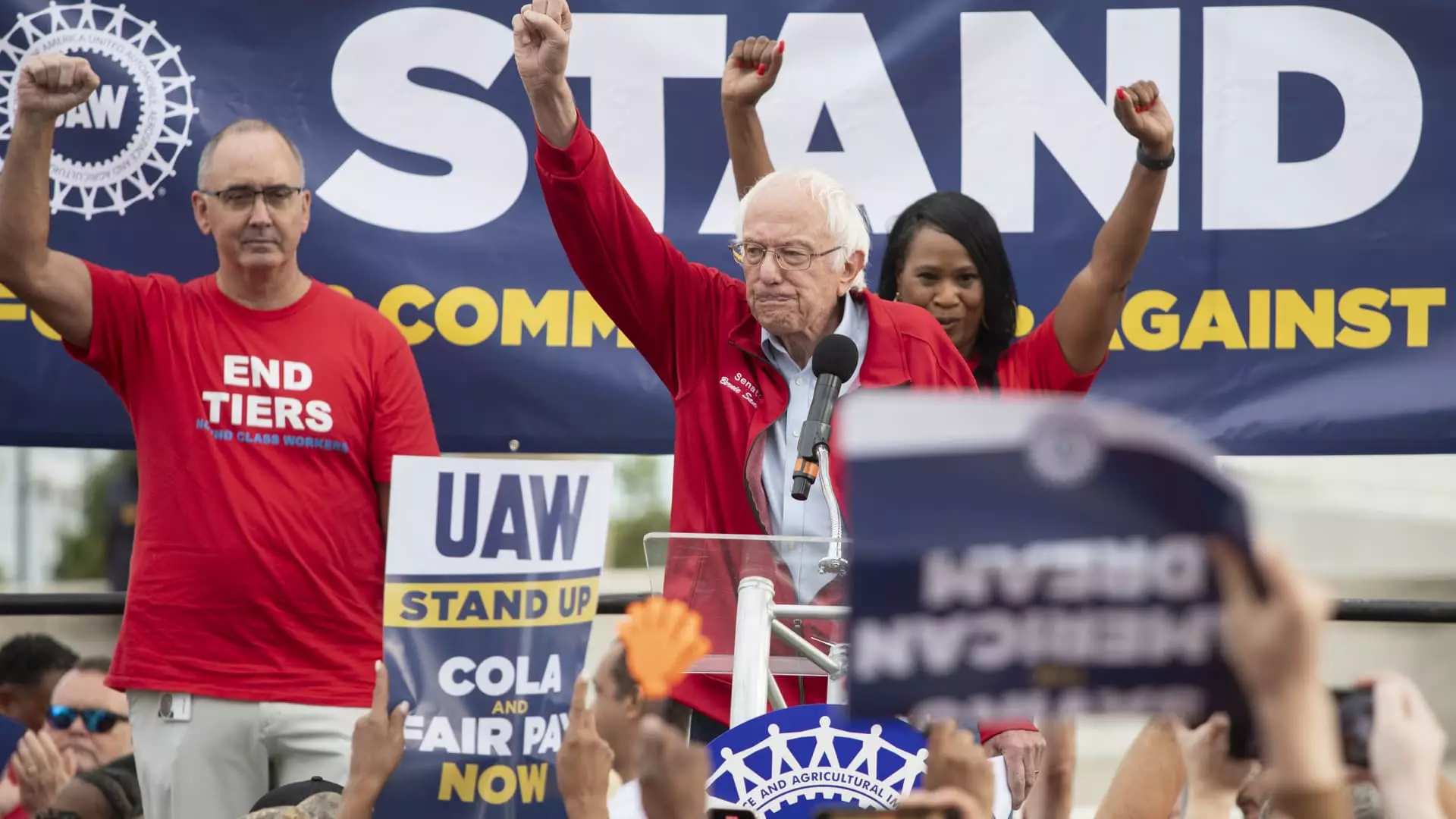Senator Bernie Sanders delivered a passionate address to striking autoworkers in Detroit on Friday, highlighting the urgency for working people in the United States to unite in solidarity with their cause. Sanders did not hold back as he called out the exorbitant salaries of General Motors CEO Mary Barra, Stellantis CEO Carlos Tavares, and Ford CEO Jim Farley, all of whom raked in over $20 million last year. “It is time for you to end your greed,” Sanders exclaimed. “It is time for you to treat your employees with the respect and dignity they deserve. It is time to sit down and negotiate a fair contract.”
Senator Sanders, a steadfast advocate for workers’ rights, believes that these strikes mark a pivotal moment in the campaign to elevate the living standards of working people across the nation. With fiery conviction, he declared, “Let us stand together to end corporate greed, let us stand together to rebuild the disappearing middle class, let us create an economy that works for all, not just the one percent.” Sanders urged every American, in every state, to rally behind the United Auto Workers (UAW) and their fight for fair treatment.
Driven by disillusionment with failed negotiations, nearly 13,000 UAW members initiated the strike on Friday, presenting a united front against Ford, General Motors, and Stellantis. This coordinated strike against the three major automobile manufacturers, in different locations simultaneously, marks an unprecedented event in the annals of the labor movement. It is a call to action that echoes the unparalleled significance of this moment.
As a self-proclaimed democratic socialist, Bernie Sanders has consistently placed income inequality at the core of his vision for America. Despite his unsuccessful bids for the Democratic presidential nomination, his fierce attacks against corporate America galvanized large crowds and left an indelible mark on the political landscape. His influence became even more tangible when he assumed the helm of the powerful Senate Committee on Health, Education, Labor, and Pensions in February. In a display of his commitment to workers’ rights, Sanders wasted no time in threatening to subpoena Starbucks CEO Howard Schultz over union-busting allegations, establishing himself as a champion for the cause.
Sanders emphasizes that UAW workers are not merely fighting for individual gain, but rather for the restoration of a time when unionized automobile jobs served as a gold standard for the middle class. “When you have auto workers who cannot afford to buy the cars they make, that is bad for the economy,” the senator observed. The struggle of these workers reflects a larger issue of economic imbalance, and their fight has far-reaching implications for the nation’s prosperity as a whole.
President Joe Biden, known for his close alignment with the labor movement, expressed his support for the striking autoworkers. Though more measured in his remarks, he called on the automakers to ensure that their record corporate profits translate into record contracts for their workers. Biden’s acknowledgement and encouragement of the workers’ cause signals a government ready to prioritize the well-being of its citizens and address the pervasive issue of income inequality.
Demands for Change
The UAW has presented a comprehensive list of demands that encapsulate the autoworkers’ vision for a fair and just workplace. These demands include a 40% hourly wage increase, a reduced 32-hour workweek, reinstating cost-of-living adjustments, restoring traditional pensions, and eliminating compensation tiers, among others. The boldness and determination of these demands mirror the unwavering resolve of the striking workers, who refuse to settle for anything less than what they deserve.
Bernie Sanders’ powerful address to the striking autoworkers in Detroit serves as a rallying cry for workers across the United States. The confrontational tone against corporate greed underscores the urgency of the situation, as workers demand fair treatment and economic justice. The coordinated strikes against major automobile manufacturers signify a turning point in the labor movement, demonstrating the strength and unity of workers standing together. As the nation witnesses this historic moment unfold, it is clear that the fight for fair treatment extends far beyond the autoworkers, resonating with anyone who dares to dream of a society that works for all.


Leave a Reply